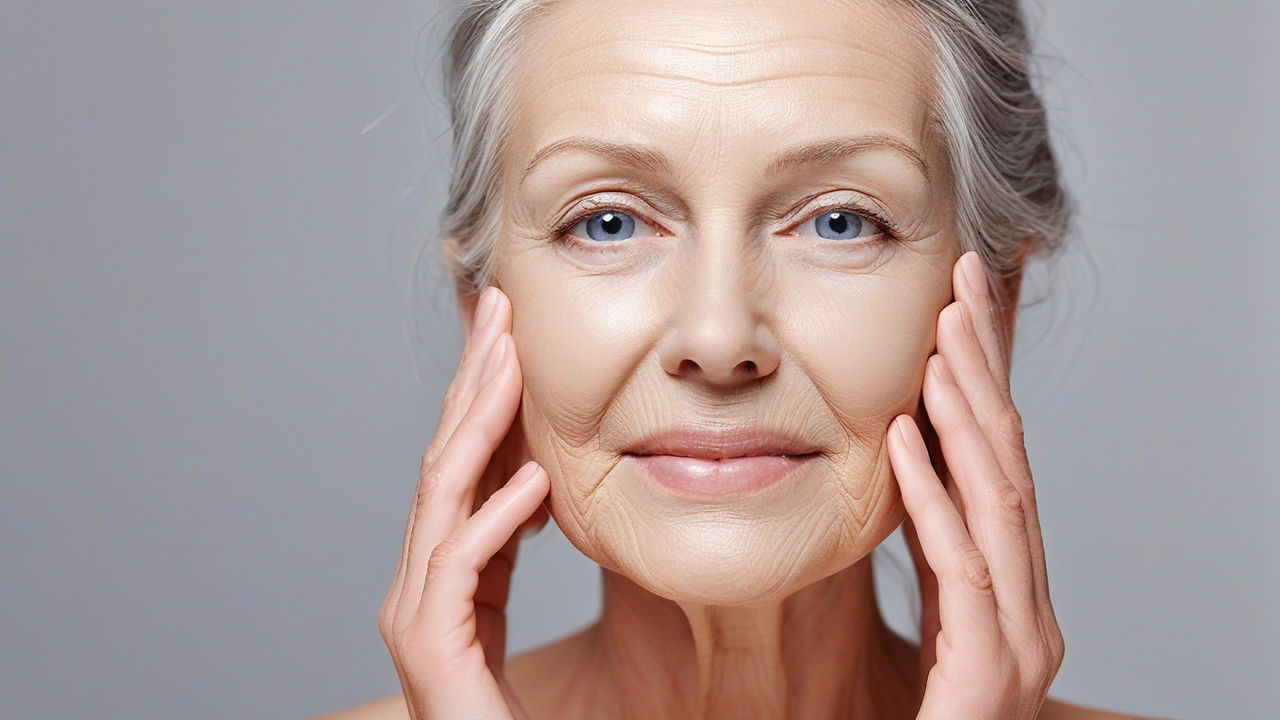The Quest for Youthful, Radiant Skin
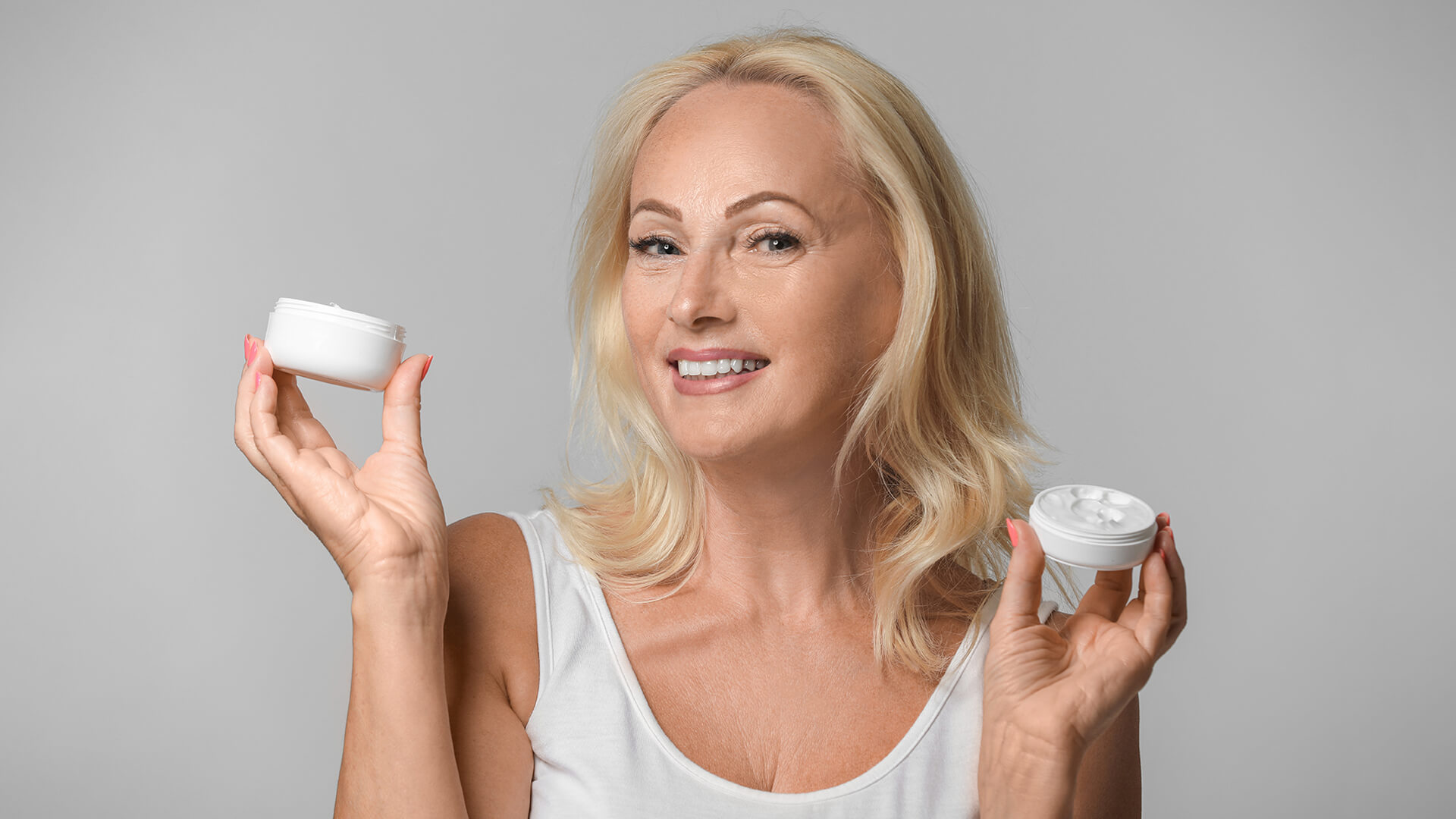
The quest for youthful, radiant skin is as old as time itself. From ancient civilizations using natural oils and herbs to modern science creating potent formulas, the pursuit of anti-aging solutions has always been at the forefront of beauty and skincare. Today, anti-aging creams are among the most sought-after products in the cosmetic industry, promising to turn back the clock and restore a youthful glow.
The Significance of Anti-Aging Creams
Anti-aging creams are more than just luxurious lotions. They represent a blend of scientific advancements and nature’s best ingredients, crafted to combat the visible signs of aging. These creams are formulated to address various skin concerns, including wrinkles, fine lines, and loss of elasticity. With regular use, they can significantly improve the skin’s texture and tone, making it look smoother, firmer, and more youthful.
One of the primary reasons for the popularity of anti-aging creams is their ability to deliver targeted treatments. Ingredients like retinoids, hyaluronic acid, and antioxidants work at the cellular level to repair damage, boost collagen production, and enhance hydration. This multi-faceted approach ensures that the skin not only looks better but also functions more effectively, maintaining its youthful resilience over time.
The Importance of Skincare in Maintaining Youthful Appearance
Maintaining a youthful appearance goes beyond mere aesthetics; it reflects a healthy and well-cared-for skin. A consistent skincare routine is essential in preserving the skin’s vitality and delaying the onset of aging signs. Cleansing, moisturizing, and protecting the skin from environmental aggressors are fundamental steps that everyone should incorporate into their daily regimen.
Anti-aging creams play a crucial role in this routine by providing the skin with essential nutrients and active ingredients that combat aging. For instance, using a cream with SPF protection can shield the skin from harmful UV rays, preventing premature aging and skin damage. Moreover, hydrating ingredients like hyaluronic acid help maintain the skin’s moisture balance, keeping it plump and supple.
Investing time and effort in a comprehensive skincare routine, including the use of anti-aging creams, can yield long-term benefits. Not only will the skin look younger, but it will also be healthier, more resilient, and better equipped to withstand the challenges of time and environment. For those seeking expert advice on starting their anti-aging journey, websites like Healthline offer valuable resources and product recommendations.
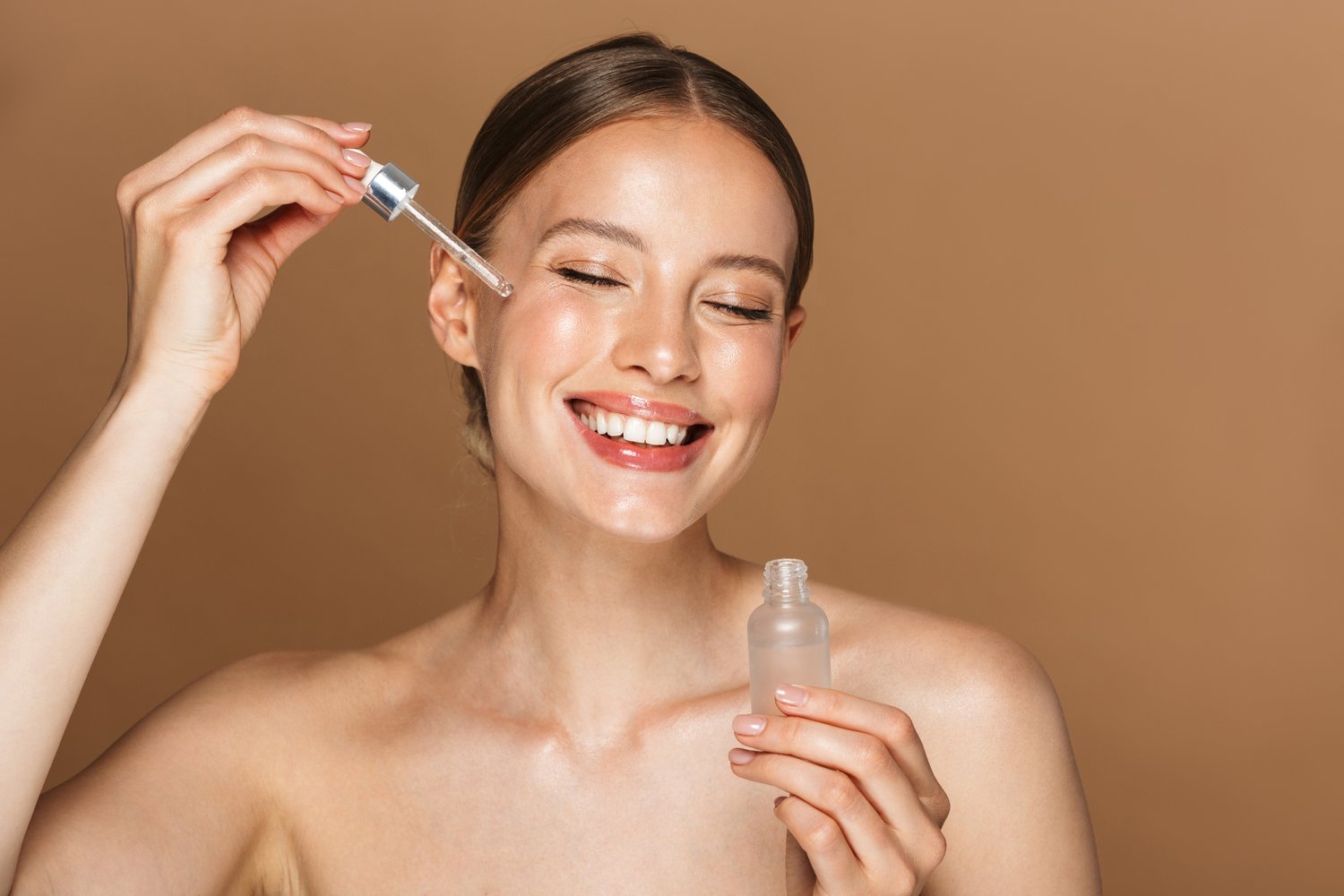
Understanding Aging Skin
The aging process is a complex interplay of intrinsic and extrinsic factors that gradually alter the skin’s structure and function. While aging is a natural part of life, understanding the science behind it can help us better combat its effects and maintain healthier, more youthful skin.
The Science Behind Skin Aging
Skin aging is influenced by both intrinsic and extrinsic factors. Intrinsic aging, also known as chronological aging, is a natural process determined by genetic factors. It typically begins in our mid-20s and is characterized by a gradual decline in the skin’s ability to repair itself. This decline results in the loss of collagen and elastin, proteins that provide structure and elasticity to the skin. Over time, this leads to thinner, less resilient skin that is more prone to wrinkles and sagging.
Extrinsic aging, on the other hand, is caused by external factors such as UV radiation, pollution, and lifestyle choices. The most significant contributor to extrinsic aging is sun exposure, which accelerates the breakdown of collagen and elastin fibers. This process, known as photoaging, can lead to premature wrinkles, pigmentation changes, and a rough texture. Additionally, factors like smoking, poor diet, and inadequate skincare can exacerbate the aging process by increasing oxidative stress and inflammation in the skin.
Common Signs of Aging Skin
- Wrinkles: These are perhaps the most recognizable sign of aging. Wrinkles form due to the gradual loss of collagen and elastin, which results in the skin losing its firmness and elasticity. Repeated facial expressions, such as frowning or squinting, can also contribute to the formation of fine lines and deeper creases.
- Fine Lines: These are small, shallow lines that typically appear around the eyes (crow’s feet), mouth (laugh lines), and forehead. They are often the first noticeable signs of aging and can deepen over time if not addressed.
- Sagging: As the skin loses its structural support, it begins to sag, particularly around the jawline, cheeks, and eyes. This sagging can result in a more tired and aged appearance, as the skin no longer maintains its youthful contour.
- Uneven Skin Tone and Texture: Aging skin can develop an uneven tone, with dark spots, redness, and a rough texture becoming more pronounced. These changes are often due to prolonged sun exposure and the skin’s decreased ability to regenerate and repair itself.
Understanding these signs and the underlying causes of skin aging is the first step in effectively addressing and managing them. By incorporating targeted skincare products, such as anti-aging creams rich in active ingredients, we can help mitigate these effects and promote healthier, more youthful-looking skin. For further reading on the science of skin aging and effective treatments, the American Academy of Dermatology offers comprehensive resources and expert insights.
Key Ingredients in Anti-Aging Creams
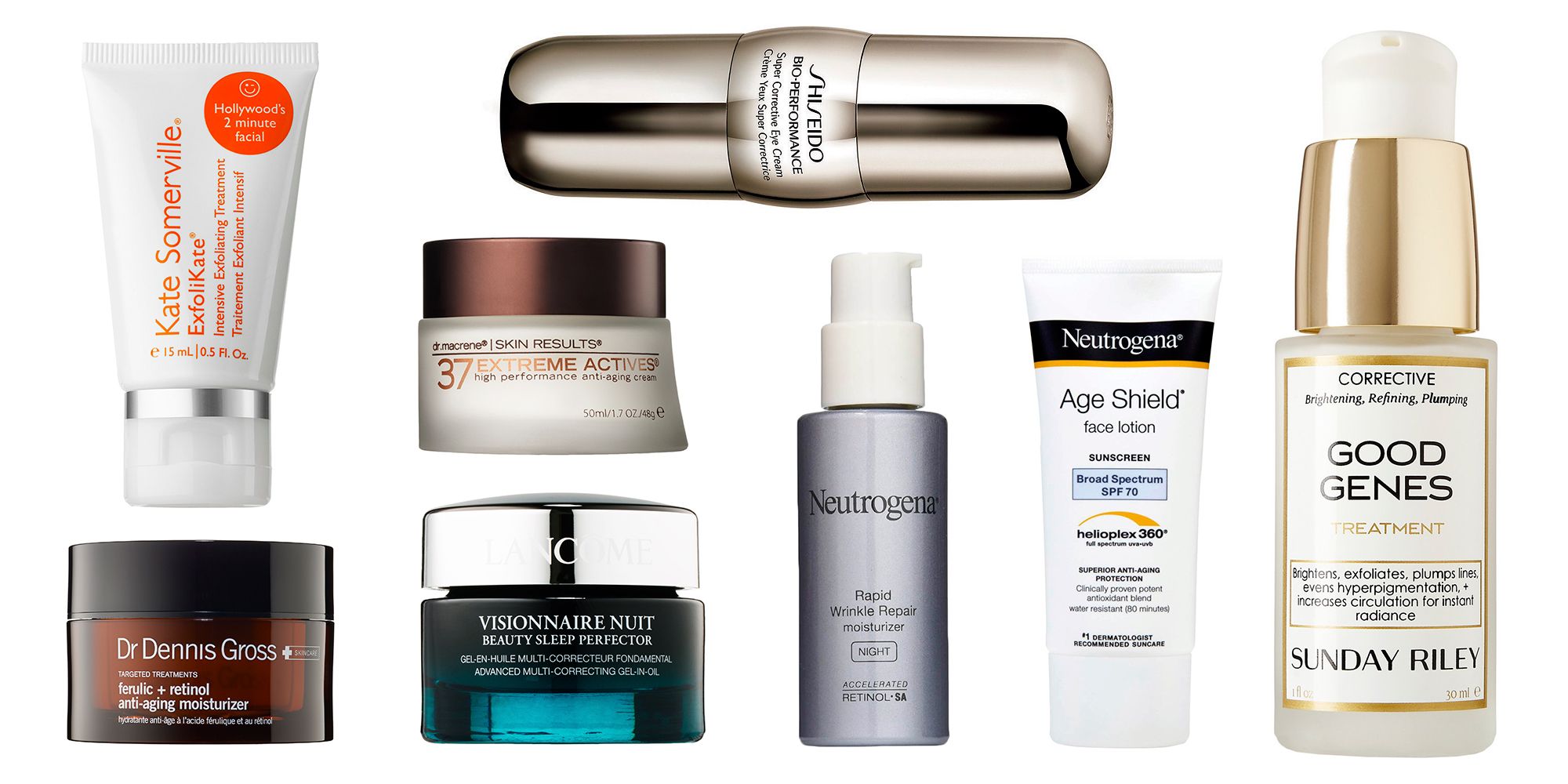
The effectiveness of anti-aging creams largely depends on their active ingredients. These components are carefully selected for their ability to address various signs of aging and improve skin health. Here, we explore some of the most powerful and widely used ingredients in anti-aging formulations.
Retinoids and Their Benefits
Retinoids, derivatives of Vitamin A, are often hailed as the gold standard in anti-aging skincare. They work by accelerating cell turnover, which helps to reduce the appearance of fine lines and wrinkles. Retinoids also promote collagen production, which is crucial for maintaining skin firmness and elasticity.
Regular use of retinoids can lead to a smoother skin texture, even out skin tone, and diminish dark spots. They are particularly effective in treating photoaged skin and preventing the formation of new wrinkles. However, it’s important to start with lower concentrations to allow the skin to build tolerance and minimize potential irritation.
The Role of Hyaluronic Acid in Hydration
Hyaluronic acid is a naturally occurring substance in the skin known for its remarkable ability to retain moisture. It acts as a humectant, drawing water from the environment and binding it to the skin, which helps to keep the skin hydrated and plump.
As we age, the natural levels of hyaluronic acid in our skin decrease, leading to dryness and loss of volume. By incorporating hyaluronic acid into anti-aging creams, we can effectively replenish moisture levels, enhance skin hydration, and improve overall skin texture. This ingredient is especially beneficial for those with dry or dehydrated skin, as it provides intense hydration without feeling heavy or greasy.
Antioxidants: Vitamin C, E, and Green Tea Extracts
Antioxidants play a vital role in protecting the skin from environmental damage caused by free radicals, which are unstable molecules that can damage skin cells and accelerate aging. Vitamin C, Vitamin E, and green tea extracts are some of the most potent antioxidants used in anti-aging creams.
- Vitamin C: This powerful antioxidant brightens the skin, reduces hyperpigmentation, and stimulates collagen production. It also provides protection against UV-induced damage when used in conjunction with sunscreen.
- Vitamin E: Known for its moisturizing and healing properties, Vitamin E helps to strengthen the skin’s barrier, reduce inflammation, and enhance the skin’s ability to retain moisture.
- Green Tea Extracts: Rich in polyphenols, green tea extracts have strong anti-inflammatory and antioxidant properties. They help to soothe the skin, reduce redness, and protect against environmental stressors.
Peptides and Their Impact on Collagen Production
Peptides are short chains of amino acids that serve as building blocks for proteins like collagen and elastin. These proteins are essential for maintaining the skin’s structure and firmness. As we age, the production of collagen and elastin decreases, leading to sagging and wrinkling.
Incorporating peptides into anti-aging creams can stimulate collagen synthesis, promote skin repair, and improve skin elasticity. They work by sending signals to skin cells, prompting them to produce more collagen. This helps to firm the skin, reduce the appearance of fine lines, and enhance overall skin texture.
Using anti-aging creams that contain a combination of these powerful ingredients can provide comprehensive benefits, addressing multiple aspects of skin aging and promoting a youthful, radiant complexion. For more information on how these ingredients work and their benefits, websites like Dermstore offer detailed insights and product recommendations.
How to Choose the Right Anti-Aging Cream
Choosing the right anti-aging cream can be a daunting task, given the vast array of products available on the market. To make an informed decision, it’s essential to understand your skin type, read ingredient labels carefully, and recognize the importance of sun protection in your skincare routine.
Identifying Your Skin Type and Concerns
The first step in selecting an anti-aging cream is to identify your skin type and specific concerns. Different skin types have varying needs, and using a product tailored to your skin type can maximize the benefits and minimize potential adverse reactions.
- Dry Skin: If you have dry skin, look for creams that are rich in hydrating ingredients like hyaluronic acid, glycerin, and ceramides. These ingredients help to lock in moisture and restore the skin’s barrier.
- Oily Skin: For oily skin, opt for lightweight, non-comedogenic formulas that won’t clog pores. Ingredients like salicylic acid can help control excess oil and reduce breakouts while still providing anti-aging benefits.
- Sensitive Skin: If your skin is sensitive, choose products that are fragrance-free and hypoallergenic. Ingredients like niacinamide and aloe vera can soothe irritation and reduce redness.
- Combination Skin: Those with combination skin should seek out balanced formulations that provide hydration without being too heavy. Look for products that target specific concerns like uneven texture and fine lines without exacerbating oiliness or dryness.
Additionally, consider your primary aging concerns, such as wrinkles, fine lines, sagging, or dark spots. This will help you choose a product with the most suitable active ingredients.
Reading Ingredient Labels and Understanding Their Effects
Reading and understanding ingredient labels is crucial when selecting an anti-aging cream. Here are some key ingredients to look for and their effects:
- Retinoids: Boost collagen production and accelerate cell turnover, reducing wrinkles and fine lines.
- Hyaluronic Acid: Provides intense hydration and plumps the skin, minimizing the appearance of fine lines.
- Antioxidants (Vitamin C, E, Green Tea Extracts): Protect the skin from free radical damage, brighten the complexion, and reduce inflammation.
- Peptides: Stimulate collagen production and improve skin elasticity.
- Alpha Hydroxy Acids (AHAs): Exfoliate the skin, improve texture, and promote a more even skin tone.
Be cautious of potential irritants like artificial fragrances, parabens, and alcohols, which can cause dryness and irritation, especially in sensitive skin.
Importance of SPF in Daily Skincare
One of the most critical components of any anti-aging regimen is sun protection. The sun’s ultraviolet (UV) rays are a major cause of premature skin aging, contributing to wrinkles, fine lines, and dark spots. Incorporating SPF into your daily skincare routine can significantly reduce these effects.
When choosing an anti-aging cream, look for products that include broad-spectrum SPF 30 or higher. This ensures protection against both UVA and UVB rays. If your chosen anti-aging cream does not contain SPF, be sure to apply a separate sunscreen as the final step in your skincare routine.
Using SPF daily not only protects against immediate sunburn but also prevents long-term damage, keeping your skin healthier and more youthful-looking over time. For additional guidance on selecting the right anti-aging products and understanding the importance of sun protection, SkinCancer.org offers valuable resources and expert advice.
Top Anti-Aging Creams in the Market
Navigating the multitude of anti-aging creams available can be overwhelming. To help you make an informed decision, here’s a review of some of the most popular and highly-rated anti-aging creams on the market, along with a comparison of their price, effectiveness, and user reviews.
Review of Popular and Highly-Rated Products
1. Olay Regenerist Micro-Sculpting Cream
Description: This cream is renowned for its advanced anti-aging formula featuring hyaluronic acid, amino-peptides, and niacinamide (Vitamin B3). It promises to hydrate and firm the skin, reducing the appearance of fine lines and wrinkles.
Price: $28 – $33 for a 1.7 oz jar.
Effectiveness: Users report visible improvements in skin texture and firmness within a few weeks of use. The cream is praised for its lightweight feel and quick absorption.
User Reviews: With thousands of positive reviews, it maintains an average rating of 4.5 stars on major retail sites.
2. Neutrogena Rapid Wrinkle Repair Night Moisturizer
Description: This product features retinol SA, glucose complex, and hyaluronic acid to accelerate skin renewal and reduce wrinkles. It’s designed for overnight use, helping to rejuvenate the skin while you sleep.
Price: $20 – $25 for a 1 oz tube.
Effectiveness: Many users note a reduction in fine lines and improved skin texture within one week. It’s often recommended for its affordability and efficacy.
User Reviews: It holds an average rating of 4.4 stars, with users appreciating its noticeable results and non-greasy formula.
3. RoC Retinol Correxion Deep Wrinkle Night Cream
Description: This cream is formulated with retinol and an exclusive mineral complex to fight deep wrinkles and promote smoother skin. It’s suitable for daily use.
Price: $18 – $22 for a 1 oz tube.
Effectiveness: Users frequently mention a significant reduction in deep wrinkles and improved skin tone over time. It’s recommended for its potent formulation and lasting results.
User Reviews: With an average rating of 4.3 stars, it’s praised for its strong performance and accessibility.
4. CeraVe Skin Renewing Night Cream
Description: This night cream combines biomimetic peptides, ceramides, and hyaluronic acid to hydrate, restore, and protect the skin barrier. It is known for its gentle yet effective formula.
Price: $13 – $18 for a 1.7 oz jar.
Effectiveness: Users with sensitive skin appreciate its gentle formulation and moisturizing benefits. Many report healthier, more hydrated skin with regular use.
User Reviews: It has an average rating of 4.6 stars, with users highlighting its affordability and suitability for sensitive skin.
5. La Roche-Posay Redermic R Anti-Aging Retinol Cream
Description: This cream combines pure retinol and a retinol booster complex to reduce wrinkles and improve skin texture. It’s known for its efficacy and gentle formulation.
Price: $40 – $50 for a 1 oz tube.
Effectiveness: Users report noticeable improvements in fine lines and skin smoothness. It’s particularly recommended for those new to retinol due to its balanced formula.
User Reviews: With an average rating of 4.4 stars, it’s praised for its effectiveness and gentle impact on the skin.
Comparison of Price, Effectiveness, and User Reviews
| Product | Price Range | Effectiveness | User Reviews |
|---|---|---|---|
| Olay Regenerist Micro-Sculpting Cream | $28 – $33 | Noticeable improvements in texture and firmness | 4.5 stars |
| Neutrogena Rapid Wrinkle Repair Night Moisturizer | $20 – $25 | Reduction in fine lines within one week | 4.4 stars |
| RoC Retinol Correxion Deep Wrinkle Night Cream | $18 – $22 | Significant reduction in deep wrinkles | 4.3 stars |
| CeraVe Skin Renewing Night Cream | $13 – $18 | Gentle, hydrating, suitable for sensitive skin | 4.6 stars |
| La Roche-Posay Redermic R Anti-Aging Retinol Cream | $40 – $50 | Effective and gentle for new retinol users | 4.4 stars |
Application Tips for Maximum Benefits
Achieving the best results from your anti-aging cream involves more than just choosing the right product. Proper application techniques, maintaining a consistent skincare routine, and using complementary products are essential to maximize the benefits of your anti-aging cream.
Proper Application Techniques
How you apply your anti-aging cream can significantly affect its efficacy. Here are some tips to ensure you get the most out of your product:
- Cleanse Your Skin: Start with a clean face. Use a gentle cleanser to remove dirt, oil, and makeup. This helps to ensure that your skin can effectively absorb the active ingredients in your anti-aging cream.
- Apply to Damp Skin: For most creams, applying to slightly damp skin can enhance absorption. After cleansing, pat your skin dry, leaving it slightly damp.
- Use the Right Amount: A pea-sized amount is generally sufficient for the entire face. Overusing the product won’t necessarily yield better results and might lead to irritation, especially with potent ingredients like retinoids.
- Pat, Don’t Rub: Gently pat the cream into your skin using your fingertips. This technique helps to ensure even distribution without pulling or stretching the skin.
- Follow Up with Moisturizer: If your anti-aging cream is not particularly moisturizing, follow up with a suitable moisturizer to lock in hydration.
- Apply Sunscreen: If your cream does not contain SPF, apply a broad-spectrum sunscreen with at least SPF 30 during the day to protect your skin from UV damage.
Importance of a Consistent Skincare Routine
Consistency is key when it comes to skincare. Here’s why maintaining a regular routine is crucial:
- Builds Skin Tolerance: Regular use of active ingredients like retinoids and acids allows your skin to gradually build tolerance, reducing the risk of irritation and maximizing benefits.
- Ensures Continuous Protection and Repair: Daily application of antioxidants and moisturizers ensures your skin is consistently protected from environmental damage and continuously repaired.
- Prevents Setbacks: Skipping days can lead to inconsistent results and can even worsen skin conditions. Sticking to a routine helps maintain steady progress.
Complementing Creams with Other Skincare Products
Using your anti-aging cream in conjunction with other skincare products can enhance its effectiveness. Here are some tips on how to complement your cream:
- Serums: Incorporate serums with targeted ingredients like Vitamin C or hyaluronic acid before applying your anti-aging cream. Serums have a lighter consistency and can penetrate deeper into the skin.
- Moisturizers: If your anti-aging cream is not sufficient on its own, follow up with a hydrating moisturizer to keep your skin plump and hydrated.
- Exfoliants: Regular exfoliation with mild acids like AHAs or BHAs can help remove dead skin cells, allowing your anti-aging cream to penetrate better and work more effectively.
- Eye Creams: The skin around your eyes is delicate and may require a specific product. Use an eye cream with peptides or caffeine to target fine lines and puffiness.
- Sunscreen: As mentioned, always use a broad-spectrum sunscreen during the day to protect your skin from harmful UV rays, which can accelerate aging.
By incorporating these application tips, maintaining a consistent routine, and using complementary products, you can significantly enhance the benefits of your anti-aging cream and achieve healthier, more youthful-looking skin. For more detailed skincare routines and product recommendations, websites like Dermstore offer valuable resources and expert advice.
Realistic Expectations and Results
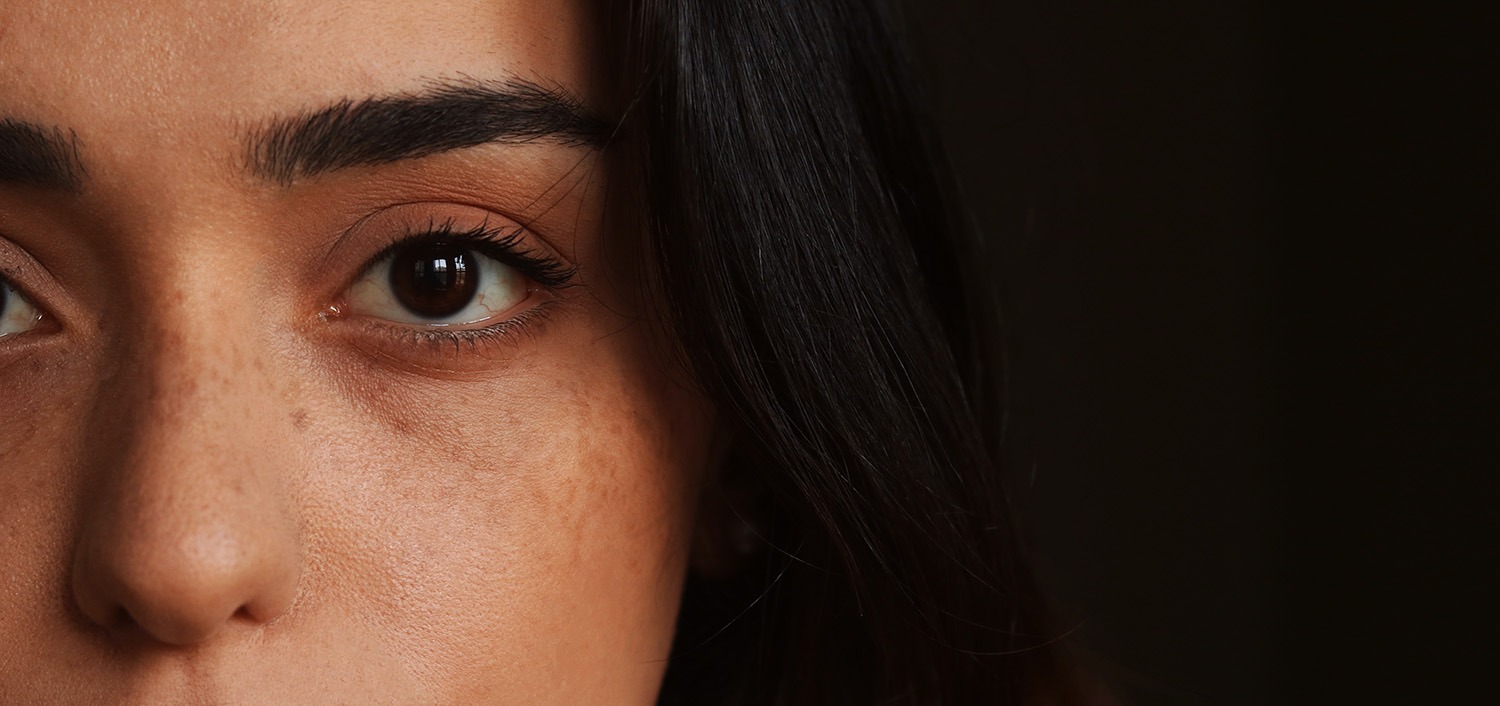
When embarking on an anti-aging skincare regimen, it’s essential to set realistic expectations, understand the timeline for visible results, and recognize the importance of a holistic approach. By combining your chosen creams with a healthy lifestyle, you can achieve the best outcomes for your skin.
Setting Achievable Goals for Anti-Aging Treatments
Understanding what anti-aging creams can and cannot do is crucial in setting achievable goals. While these products can significantly improve skin texture, reduce the appearance of fine lines and wrinkles, and enhance overall skin tone, they won’t produce overnight miracles.
Board-certified dermatologists often emphasize the importance of patience and consistency in any skincare routine.
- Short-term Goals: In the first few weeks, focus on improving skin hydration and texture. Ingredients like hyaluronic acid can provide immediate plumping and smoothing effects.
- Medium-term Goals: Over a few months, aim for a noticeable reduction in fine lines and a more even skin tone. Retinoids and glycolic acid can help accelerate cell turnover and fade pigmentation.
- Long-term Goals: With consistent use over six months to a year, expect significant improvements in skin firmness and elasticity. This is due to the cumulative effects of ingredients like peptides and retinoids on collagen production.
Understanding the Timeline for Visible Results
The timeline for seeing visible results from anti-aging treatments can vary based on the ingredients used and individual skin responses. Here’s a general guideline:
- Immediate (Within a Few Days): Improved hydration and a temporary plumping effect, especially from ingredients like hyaluronic acid.
- Short-term (4-6 Weeks): Smoother skin texture and a slight reduction in fine lines as the skin begins to respond to active ingredients like glycolic acid.
- Medium-term (2-3 Months): More noticeable reduction in fine lines, improved skin tone, and fading of dark spots. Retinoids and antioxidants start to show more profound effects.
- Long-term (6-12 Months): Significant improvement in skin firmness, reduction in deep wrinkles, and overall rejuvenation. Collagen-boosting ingredients like peptides and retinoids deliver their maximum benefits.
According to the GH Beauty Lab, it is important to consistently use these products as directed to maintain and enhance results over time.
Combining Creams with a Healthy Lifestyle for Best Outcomes
For the best results, it’s crucial to complement your anti-aging skincare routine with a healthy lifestyle. Board-certified dermatologists often recommend the following practices:
- Balanced Diet: Eating a diet rich in antioxidants, vitamins, and minerals can support skin health from the inside out. Foods like berries, leafy greens, and nuts provide essential nutrients that help combat oxidative stress.
- Hydration: Drinking plenty of water is vital for maintaining skin hydration and elasticity. Aim for at least eight glasses a day to keep your skin looking plump and fresh.
- Sun Protection: Daily use of a broad-spectrum SPF 30 or higher is essential. UV exposure is a leading cause of premature aging, and protecting your skin from the sun can prevent further damage.
- Regular Exercise: Exercise increases blood flow, which helps nourish skin cells and keep them vital. It also helps reduce stress, which can have a positive impact on skin health.
- Adequate Sleep: Quality sleep is crucial for skin repair and regeneration. Aim for 7-9 hours of sleep per night to allow your skin to recover and rejuvenate.
- Avoid Smoking and Excessive Alcohol: Smoking and excessive alcohol consumption can accelerate the aging process by damaging skin cells and depleting vital nutrients.
By setting realistic goals, understanding the timeline for results, and integrating your anti-aging creams with a healthy lifestyle, you can achieve a youthful, radiant complexion. For more detailed advice tailored to your skin type and concerns, consulting with a board-certified dermatologist is always recommended. Websites like WebMD and resources from the GH Beauty Lab can provide further insights and product recommendations.
